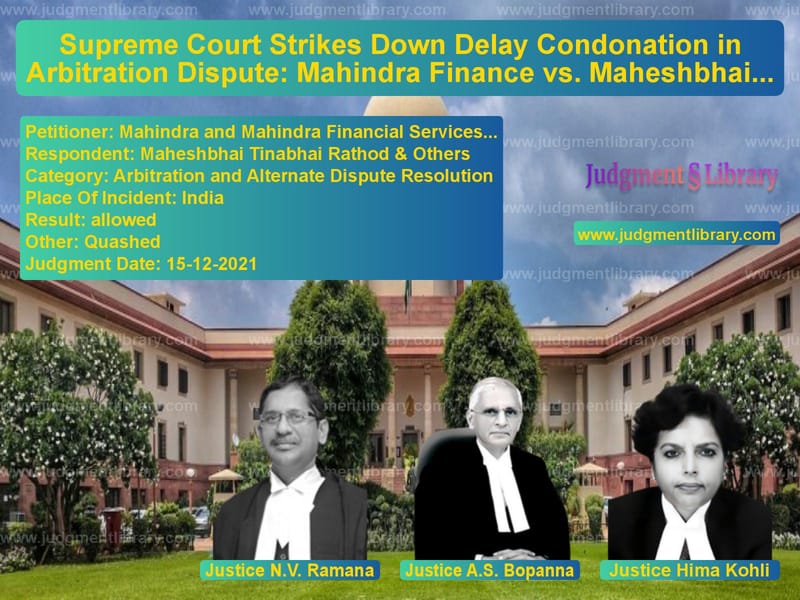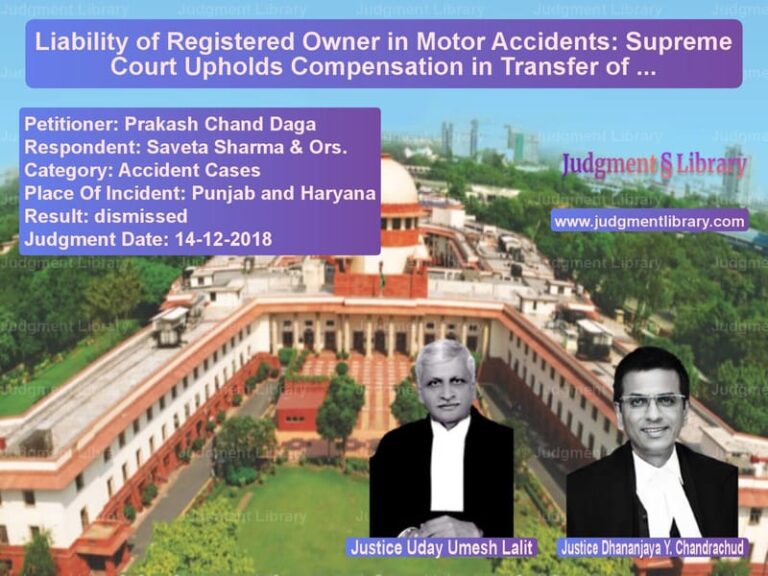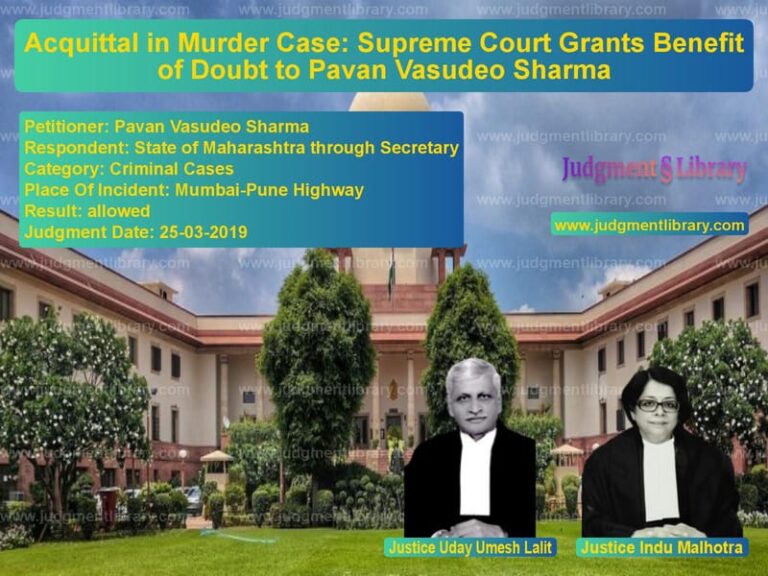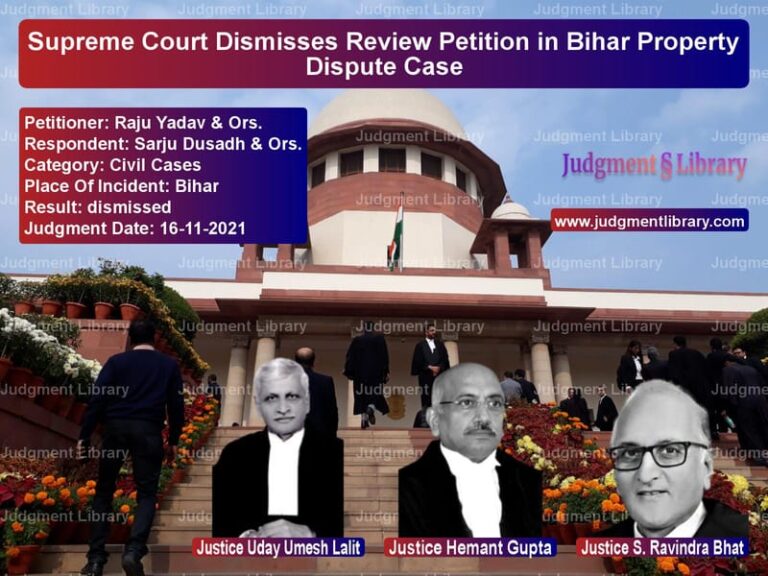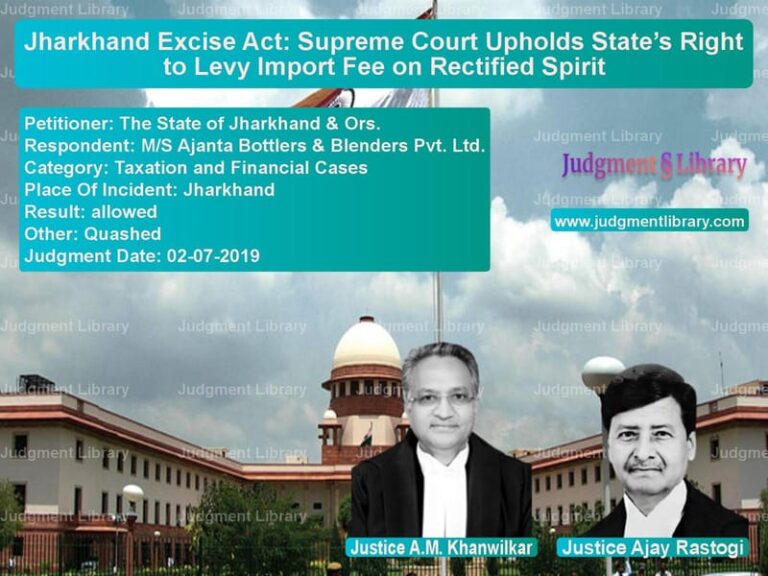Supreme Court Strikes Down Delay Condonation in Arbitration Dispute: Mahindra Finance vs. Maheshbhai Rathod
The Supreme Court of India recently delivered a significant ruling in the case of Mahindra and Mahindra Financial Services Ltd. vs. Maheshbhai Tinabhai Rathod & Others, addressing the strict limitations on challenging arbitral awards. The Court ruled that the delay in filing an application under Section 34 of the Arbitration and Conciliation Act, 1996 beyond the statutory limit could not be condoned. The decision reaffirmed the principle that arbitration awards must achieve finality and that courts should not extend the limitation period beyond what is explicitly provided in the Act.
Background of the Case
The dispute arose when Maheshbhai Tinabhai Rathod availed a loan from Mahindra and Mahindra Financial Services Ltd. for the purchase of a tractor. The loan agreement, executed on October 24, 2005, contained an arbitration clause, and when Rathod defaulted on repayment, the matter was referred to arbitration.
The arbitrator passed an award on February 28, 2011, in favor of Mahindra Finance, directing the borrower to pay the outstanding amount. The award was allegedly dispatched to both parties via Registered Post with Acknowledgment Due. Subsequently, Mahindra Finance initiated execution proceedings on June 27, 2011.
Legal Challenge and Delay in Filing Petition
The borrower, Rathod, filed an application under Section 34 of the Arbitration and Conciliation Act, 1996, seeking to set aside the arbitral award. However, the application was filed on January 4, 2012, after a delay of 185 days beyond the three-month period prescribed under Section 34(3) of the Act.
Rathod contended that he was unaware of the arbitral award and came to know about it only when he received a court summons in the execution proceedings on November 15, 2011. He sought condonation of the delay under Section 5 of the Limitation Act, 1963, arguing that the delay was unintentional and caused due to lack of knowledge of the award.
Proceedings Before the High Court
The Single Judge of the Bombay High Court dismissed Rathod’s application, holding that Section 5 of the Limitation Act did not apply to petitions filed under Section 34 of the Arbitration Act. The High Court ruled that the borrower had refused to accept the registered post containing the award and was deemed to have been served on March 23, 2011. Thus, his delay of 185 days was not condonable.
Rathod then appealed to the Division Bench of the Bombay High Court, which allowed the appeal, condoning the delay and directing that the arbitration petition be heard on merits.
Arguments Before the Supreme Court
Petitioner’s (Mahindra Finance) Arguments:
- The High Court’s Division Bench erred in applying Section 5 of the Limitation Act to arbitration proceedings.
- Section 34(3) of the Arbitration and Conciliation Act provides a strict limitation period of three months, extendable by 30 days at most, and explicitly bars condonation beyond this period.
- The borrower was aware of the award but deliberately delayed challenging it.
- The law favors finality in arbitration proceedings and excessive judicial intervention defeats the purpose of arbitration.
Respondent’s (Maheshbhai Rathod) Arguments:
- The borrower did not receive a copy of the award and only learned about it after the execution summons.
- The delay was unintentional and should be condoned in the interest of justice.
- Courts have discretion to condone delay under extraordinary circumstances.
- The High Court was justified in granting relief to avoid grave injustice.
Supreme Court’s Observations
The Supreme Court carefully examined the provisions of the Arbitration and Conciliation Act, 1996, and ruled:
- Strict Limitation Period: Section 34(3) explicitly limits the time for challenging an award to three months, with a grace period of 30 days. The Court held that “but not thereafter” in the provision was an express exclusion of any further extension.
- Exclusion of Section 5 of the Limitation Act: The Court reaffirmed its previous ruling in Union of India vs. Popular Construction Co. (2001), stating that Section 5 of the Limitation Act does not apply to arbitration proceedings.
- Deemed Service of Award: Since the borrower had refused to accept the registered post containing the award, the Court held that refusal constitutes valid service under the law.
- Judicial Intervention Should Be Minimal: The ruling emphasized that arbitration is meant to be a speedy and efficient dispute resolution mechanism, and courts should not interfere unless absolutely necessary.
Final Judgment
The Supreme Court ruled as follows:
- The Division Bench’s order condoning the delay was set aside.
- The Single Judge’s decision refusing to condone the delay was reinstated.
- The arbitration petition filed by the borrower under Section 34 was dismissed as time-barred.
Key Takeaways
- Arbitration Awards Have Finality: Once an award is passed, it must be challenged within the prescribed limitation period.
- Courts Cannot Extend Limitation Beyond 120 Days: The Supreme Court reaffirmed that no condonation beyond the grace period of 30 days is allowed.
- Refusal to Accept a Registered Post is Considered Valid Service: Parties cannot escape limitation laws by avoiding receipt of legal documents.
- Minimal Court Intervention in Arbitration: The judgment reinforces the legislative intent to reduce judicial interference in arbitration matters.
This ruling is a landmark decision that upholds the principles of arbitration finality and strict adherence to statutory limitation periods.
Petitioner Name: Mahindra and Mahindra Financial Services Ltd..Respondent Name: Maheshbhai Tinabhai Rathod & Others.Judgment By: Justice N.V. Ramana, Justice A.S. Bopanna, Justice Hima Kohli.Place Of Incident: India.Judgment Date: 15-12-2021.
Don’t miss out on the full details! Download the complete judgment in PDF format below and gain valuable insights instantly!
Download Judgment: mahindra-and-mahindr-vs-maheshbhai-tinabhai-supreme-court-of-india-judgment-dated-15-12-2021.pdf
Directly Download Judgment: Directly download this Judgment
See all petitions in Arbitration Act
See all petitions in Enforcement of Awards
See all petitions in Dispute Resolution Mechanisms
See all petitions in Judgment by N.V. Ramana
See all petitions in Judgment by A. S. Bopanna
See all petitions in Judgment by Hima Kohli
See all petitions in allowed
See all petitions in Quashed
See all petitions in supreme court of India judgments December 2021
See all petitions in 2021 judgments
See all posts in Arbitration and Alternate Dispute Resolution Category
See all allowed petitions in Arbitration and Alternate Dispute Resolution Category
See all Dismissed petitions in Arbitration and Alternate Dispute Resolution Category
See all partially allowed petitions in Arbitration and Alternate Dispute Resolution Category

